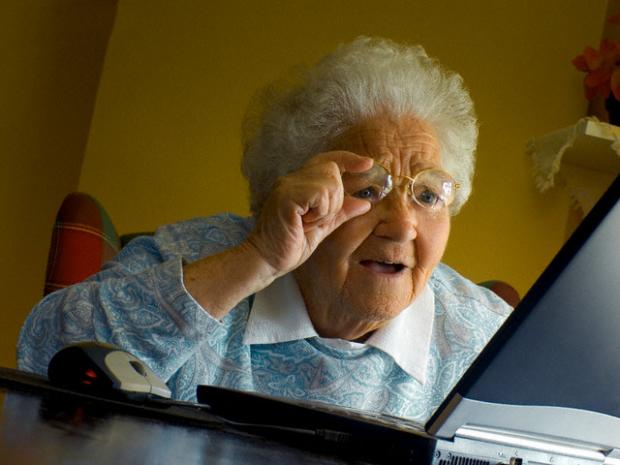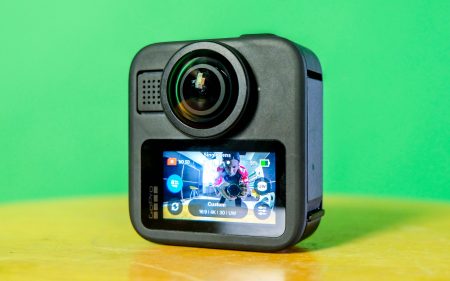For many of us, staying connected and navigating the intricacies of modern technology has become second nature. However, there remains a significant portion of the population, particularly older folks, who may struggle to keep pace with the digital revolution.
As a result, well-intentioned efforts to bridge the digital divide by passing down old tech to older relatives may not always yield the desired outcomes. Turns out there are some risks and consequences of this practice, however well-intentioned it may be.
Rather, techy young ones often find themselves as their family’s unofficial tech support, or a Family Information Officer (FIO) if you will. Whether it’s troubleshooting technical issues, providing guidance on device setup, or recommending software solutions, FIOs play a crucial role in helping older relatives navigate the complexities of modern technology.
However, despite their best efforts, the process of digital inclusion for older generations remains fraught with challenges.
The digital divide
 One of the most pressing issues in the realm of technology adoption is the widening gap between those who are digitally fluent and those who are not.
One of the most pressing issues in the realm of technology adoption is the widening gap between those who are digitally fluent and those who are not.
This digital divide is particularly pronounced among older individuals, many of whom may have limited exposure to digital devices and online services. As society becomes increasingly reliant on digital platforms for essential tasks such as banking, healthcare, and communication, the stakes of digital exclusion are higher than ever before.
At the heart of the issue lies a phenomenon Stuff‘s editor-in-chief Toby Shapshak calls ‘downstreaming’ wherein younger relatives pass down their old tech to older family members in an attempt to facilitate digital connectivity.
While this gesture may be well-intentioned, it often falls short of addressing the unique needs and challenges faced by older users. Outdated devices with obsolete operating systems, incompatible apps, and complex user interfaces can quickly become sources of frustration and alienation for older relatives.
And there are consequences
The consequences of handing down outdated tech to older relatives are manifold. In addition to the practical limitations imposed by obsolete hardware and software, there are also psychological and emotional implications to consider.
Feelings of inadequacy, frustration, and isolation may arise when older individuals are unable to effectively navigate modern technology or participate fully in digital interactions.
Also, the rapid pace of technological advancement means that the knowledge gap between younger and older generations continues to widen, exacerbating those feelings of disconnect and alienation.
The alternative method
In light of these challenges, there is a growing recognition of the need for tailored technology solutions designed specifically for older users.
You can find a range of products and services tailored to the needs and preferences of mature users. From simplified interfaces to larger buttons and compatibility with essential services, these solutions are designed to empower older individuals to navigate the digital landscape with confidence and ease.
Read More: How older people are mastering technology to stay connected after lockdown
All of this means we should be addressing the digital needs of older generations, and it requires a multifaceted approach. While the impulse to hand down old tech to older relatives may stem from a desire to help, it is essential to recognise the limitations of this approach and explore alternative strategies for promoting digital inclusion.
By prioritising tailored solutions, thoughtful assistance, and ongoing support, we can ensure that older relatives remain connected, engaged, and empowered in an increasingly digital world.




1 Comment
Huh? Is this wokeness or sly marketing for Big Tech?
What is “older tech” anyway? The previous generation iPhone or Samsung? A Windows 10 laptop vs Windows 11 Ver whatever? What emotional/psychological (sic) harm will one- or two-year-old generation tech (ie not latest available) gifted to the septuagenarian or octogenarian uncle or auntie (your photos) have?
A decade ago I was gifted a used Acer Travelmate after my Acer died (5 years old, that one was a lemon). Windows 7 (2009), yay! A literally solid machine – heavy, aluminium, well built – it worked except charger replacements give out after a year. It’s time to replace because it’s obsolete, the battery is permanently dead and it has no HDMI and OLED. But the Travelmate still works after 15 years (great stuff, Acer) if I make do with its limitations.
The point is older devices, whatever, can still be useful. We live in a throwaway, consumerist society where Big corporations brainwash us into believing that unless we spend, spend on the latest and greatest, we’re nothing. If we held onto them, they’d have no markets and will not advertise (in Stuff etc).
For the rest, I’m not sure if one should take this article seriously – the language, the content, the purpose.